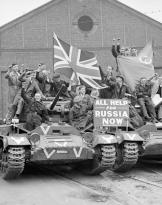Greece, an ancient land known to its philosophers and poets, first of all the great Homer (who knows if it was really Greek!) Between 1400 and 1800 was subject to the Ottoman Empire. This part of the story is much less known to us.
It was four centuries of struggles between Greek partisans and Ottoman occupation, a struggle to which foreigners also participated, including Lord Byron.
Byron always thought he was brought to the action.
If he could not follow his inclinations, he thought, he was guilty of his legs problems, which perhaps made him feel inferior to the others.
When, however, in the 1823, tired of quiet life (and perhaps of her last lover, Countess Teresa Guiccioli), has the opportunity to take the defenses of a people, Greek, for so many years subjected to the occupation of the Ottomans, marries the cause without reserve and makes available to him his mind, combat spirit and all his possessions.
Lord Byron had long followed the exploits of Alessandro Mavrocordato, a Greek politician who, together with other Greek patriots, participated in the proclamation of independence on 1 January 1822.
Of course Mavrokordato was not the leader of the revolution, there were others and they never agreed (something that in some respects assimilates the Greeks to the Italians!).
In Greek 1823, Luriottis, presented the defenses of the Greek cause before the British government. A group of British politicians roamed the wave of controversy and set up a committee for the independence of Greece. It was part of Jeremiah Bentham, Burdett, Hobhouse (Byron's friend), Kinnaird, Bowring and others. It was decided to send such a Blach in Greece for an investigation. Blaquiere knew that Byron had announced several times that he wanted to return to Greece and decided that the poet's fame might have served him and the Greek cause, he decided to invite him to join him.
Byron could not resist the temptation, he was just what he needed: a valid reason to escape the boredom.
The 13 July 1823 was on board theHercules, the ship that would take her to Greece. He carried with him a small follow up of friends, animals, weapons and ammunition (even some cannons!) And especially 50.000 Spanish dollars, a treasure for those times.
On the evening of the 13 July,Hercules he sailed from Genoa.
Byron would never return, but perhaps in the depths of his mind he sensed it. Here is what he wrote:
The dead woke up - and I will sleep?
The world is in war with the tyrants - and I have to bow down?
The harvest is ripe - and I will hesitate to reap it?
I do not sleep anymore; the thorn penetrates into my bed;
Every day a trumpet resounds in my ear,
Its echo in my heart ...
(Manfred)
The 1 ° August l 'Hercules he arrives in Kefalonia where it was discovered that Blaquiere, after having exhorted him to join him, had not waited for him and had returned to England.
Byron immediately discovered that at that location, then under the British protectorate, was considered a celebrity, both by the British of his Majesty as by the Greeks who lived on the island.
Among the various struggling parties he chose to support Mavrokordato's operations by spending four thousand pounds in his own pocket to pay the ship's crews who would have to help break the Turkish naval block to reach his party in Greek territory.
The December 27 finally decides to leave.
"I have some hope that the cause will triumph he wrote - but whether it triumphs or not, you have to follow the rules of your honor rigidly ..."
Along the way were attacked by the Turks, the poet managed to escape and only the 4 January the fleet of Mavrocordato managed to find it and take him to Missolungi: finally in Greek territory!
The situation at Missolungi proved to be critical at the beginning, there was no organization, no army, only trotting troops, and they did not want to fight; too, they had been left alone for too long and the troops that were not occupied impregnated.
Mavrocordato saw Byron a little hope and offered him the office of archistrategos.
Finally some of the awaiting reinforcements came. The London Committee had sent mr. Parry with some men and cannons. It was a non-commissioner, Byron, and the cause had to settle down, but now he had realized that his case was a lost cause. It was also impossible to agree with only two people in the combriccola.
The Ottomans' best allies were just their enemies, Greeks and British allies!
The preparations for the assault on Lepanto were almost finished, the day was approaching. The problems were always the same, to make Greeks and allies agree and to do so he had to resort to his money often, but he did it willingly, perhaps resigned.
The 15 February of the 1824 fired most of its troops, the suliots had indeed asked to appoint officers a (conspicuous) part of their troops. It was the straw that broke the vase. But that afternoon he felt sick. The face was contracted and the body agitated by violent convulsions.
The April 9 decided to take a horse ride, despite the weather announcing rain. On his return Byron was sick. In the following days the fever went up. Byron was always worse.
On the evening of the 19 a violent hurricane rose up on Missolonghi, as if to greet for the last time the soul of that poet and man of action who had been:
If you regret your youth, why live?
Here is the country for an honorable death:
Get down on the field and give your life!
Look for you ... a soldier's grave
Which is the best for you; look around,
Choose the ground and give peace.












